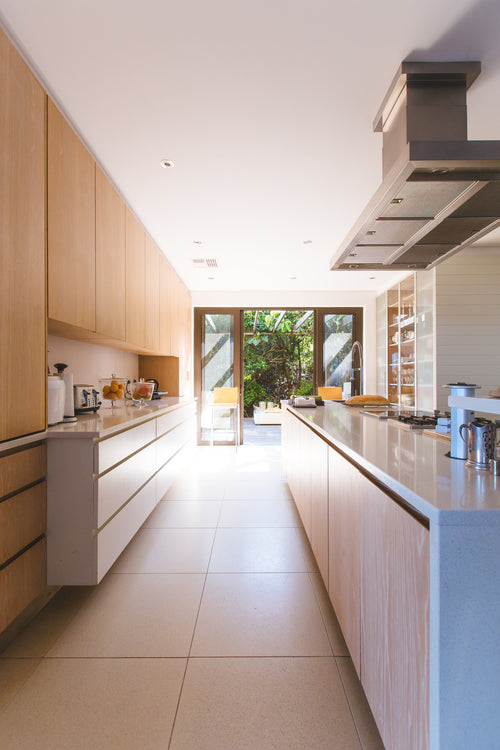KITCHEN RENOVATION: FINDING THE RIGHT STONE COUNTERTOP

A kitchen renovation can transform the entire feel of your home, make it more comfortable for entertaining, and significantly increase the value of your property. While cabinetry and fixtures can make a statement, often the most visible and impactful part of a kitchen are the countertops. And stone countertops, whether natural or engineered, provide the most variety and return on investment.
With hundreds of surface options and finishes to choose from, finding the right stone countertop can be overwhelming. Here, we’ll break down the basics of choosing the right stone countertop for your kitchen reno, and provide more in-depth resources for when you’re ready to take action.
NATURAL STONE COUNTERTOPS
In essence, natural stone refers to material quarried from the earth. Some people prefer natural stone because it isn't synthetic and creates a luxurious look throughout the house. Natural stone is a collective term for any of the following (and these are just a few of the most common):
-
Granite
-
Limestone
-
Marble
-
Travertine
-
Sandstone
-
Onyx
-
Quartzite
Some natural stone, depending on the rarity and where it comes from, requires a large upfront investment. You’ll also have to take special care to maintain it to keep it looking its best. These classic materials are beautiful and highly functional. But they aren't right for every kitchen.
If you have a high-traffic home, you'll need to consider your countertop's porosity and permeability—the two primary factors when it comes to how long your freshly installed stone will stay looking new. For a comprehensive, in-depth guide on the types of natural stone and their properties, please visit our Stone Selection Guide.
ENGINEERED STONE COUNTERTOPS
Unlike natural stone which is cut from a slab, engineered stone (also called manufactured stone) is a composite material made out of finely crushed stone mixed together with an industrial resin or adhesive. Manufacturers will compress stone crystals to mimic a slab of natural stone such as marble or granite.
While you might not achieve the same "wow" factor with a man made countertop as with showstopping natural minerals, engineered stone countertops have a lot of benefits like longevity, durability, and negligible porosity. They may be more resistant to scratching, cracking and discoloration, and they generally require a smaller upfront investment.
While some may turn their noses up at the thought of artificial or manufactured stone, these materials have come a long way in recent years. They now come in a far wider range of colors and textures, and often at a more reasonable price to install and maintain. Although engineered stone is relatively nonporous, sealing it can further extend its life, impart a glossy shine and protect from stains and bacteria.
PROTECTING YOUR STONE KITCHEN COUNTERTOP
Now that you've learned a bit more about the different options available, you're probably excited to start planning for your stone countertop kitchen remodel. Remember, no matter which material you go with, it's essential to protect your investment. Learn more about applying a clear, nontoxic sealer, and be sure to have it on hand before installation. You won't want that stunning new stone to go even a day without protection.



